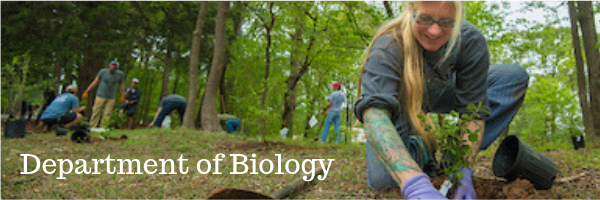
Faculty and Student Publications
Document Type
Article
Publication Date
2018
Abstract
Common ecological restoration treatments such as thinning trees and prescribed burning could result in changes to soil fungal communities and changes to the function of those communities. Ectomycorrhizal fungi are especially likely to be affected as they are symbionts on plant roots and exhibit host and niche preferences. Ectomycorrhizal fungi also produce extracellular enzymes that are important in soil nutrient cycling. We conducted a community survey of ectomycorrhizal fungi and assayed ectomycorrhizal root tip enzyme activity using substrate plugs in northern Mississippi upland oak–pine woodland plots differing in restoration history to explore the influence of woodland restoration on ectomycorrhizalfungal community composition and function. Restoration treatment was significant in explaining the occurrence of the most common fungal species (Russula xerampelina) and the most common family (Thelephoraceae) in the ectomycorrhizal fungal community survey. Highest potential laccase, peroxidase, and N-acetyl-b-D-glucosaminidase enzyme activity were found in a prescribed burn plot, and the lowest enzyme activities at a wildfire plot, where richness of ectomycorrhizal fungi was also lower. Different fungal families displayed significantly different enzymatic capabilities, with Hydnangiaceae having the highest laccase activity and Tuberaceae having significantly higher peroxidase and chitinase activity than several other families. These results suggest that restoration treatments can affect ectomycorrhizal fungal community composition and function, and better understanding these changes can aid understanding of the niches of ectomycorrhizal fungi and the impacts of restoration.
Relational Format
Journal Article
Recommended Citation
Rasmussen, A. L., Brewer, J. S., Jackson, C. R., & Hoeksema, J. D. (2018). Tree thinning and fire affect ectomycorrhizal fungal communities and enzyme activities. Ecosphere, 9(10). doi:10.1002/ecs2.2471
DOI
10.1002/ecs2.2471
Accessibility Status
Searchable text


Comments
The Article Processing Charge for this article was partially funded by the UM Libraries Open Access Fund.